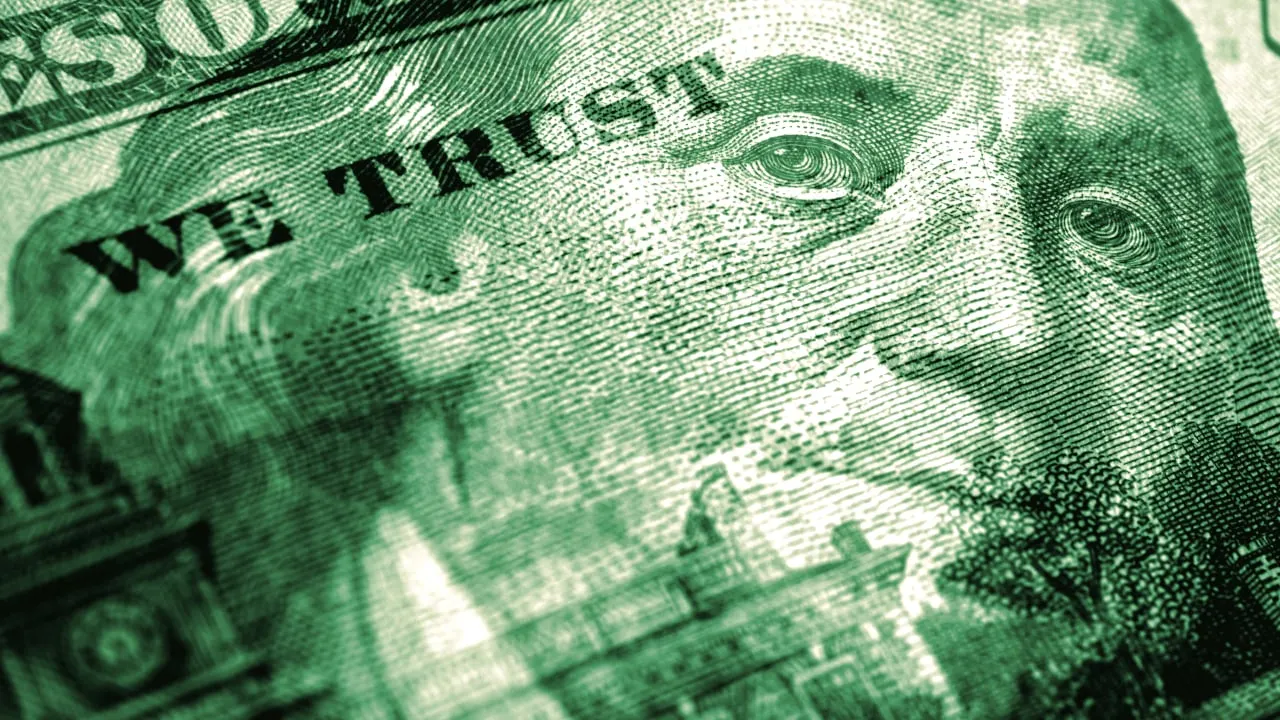Investing in traditional finance assets has helped increase lagging revenue for the biggest player in DeFi.
MakerDAO now generates half of its revenue from real-world assets, like short-term bond ETFs, and staking rewards on its holdings of Gemini's USD-pegged stablecoin.
Currently, MakerDAO estimates it will see $20.2 million in annual revenue, Sebastien Derivaux, the DAO’s asset-liability lead, told Decrypt—and that’s not counting the real-world asset revenue, which takes longer to be reflected in blockchain data.
“Doubling revenues over the last few weeks and it’s only the beginning,” he wrote on Twitter. “I’m starting the discussion to reward DAI holders to supercharge growth.”
MakerDAO is the largest decentralized finance (DeFi) protocol, with $8.3 billion worth of assets on its lending platform, according to DeFi Llama. As of Friday morning, that represents almost 15% of the $56 billion worth of assets in all of DeFi—a catch-all term for automated, permissionless financial tools accessible on blockchain networks.
The Maker protocol is run by a DAO, or decentralized autonomous organization, which is essentially an online community of stakeholders. MakerDAO is made up of MKR token holders, who vote to determine interest rates and updates to the protocol. For example, MakerDAO voted to increase the debt ceiling on one of its liquidity pools in September and to invest $500 million in treasury bonds last month, which set the stage for Friday’s news.
Meanwhile, MakerDAO protocol engineer Sam MacPherson has been asking the community on Twitter how they would prefer to receive rewards from the DAO’s treasury bond investment. His proposal on Friday was to pass on 3.8% of the yield that MakerDAO earns to DAI holders.
DAI is MakerDAO’s native stablecoin and integral to how Maker handles lending. Borrowers deposit collateral, like Ethereum, into vaults and generate DAI in return. That DAI gets destroyed when the user repays their loan. But users who hold onto their DAI earn rewards, which automatically accrues at a rate set by the Maker community.
“The overall idea is to have a loop where we invest our funds in t-bills, get yield, give it to DAI holders,” Derivaux told Decrypt. “That will attract other DAI holders and we loop.”
That hasn’t materialized into a proposal on Maker’s governance forum yet. And there’s still a very vocal portion of the community that’s skeptical about investing in real-world assets.
One of the main draws of DeFi, at least for some investors, is transparency. To that end, Derivaux has made an effort to keep MakerDAO’s bond investment performance visible to the public. He created a dashboard on Dune Analytics that ingests data from a smart contract on Polygon and displays the performance of MakerDAO’s off chain bond investments.
As of Friday morning, the portfolio (comprising 60% of 1-3 year and 40% of 0-1 year treasury bond ETF shares) was down slightly and worth $99.7 million. The plan is for MakerDAO to invest $500 million in treasury and corporate bonds. The DeFi project took its first big step towards realizing MakerDAO founder Rune Christensen’s “endgame” proposal last week, when the community voted to split into MetaDAOs to specialize in different aspects of the DAO’s operations.
Staking rewards also make up a sizable portion, 23%, of Maker’s revenue. In September, crypto exchange Gemini offered MakerDAO a 1.25% reward on its staked GUSD, the firm’s stablecoin, if it maintained a balance of at least 100 million. As of Friday afternoon, MakerDAO had $312.6 million worth of GUSD on its platform, according to a Dune Analytics dashboard.

